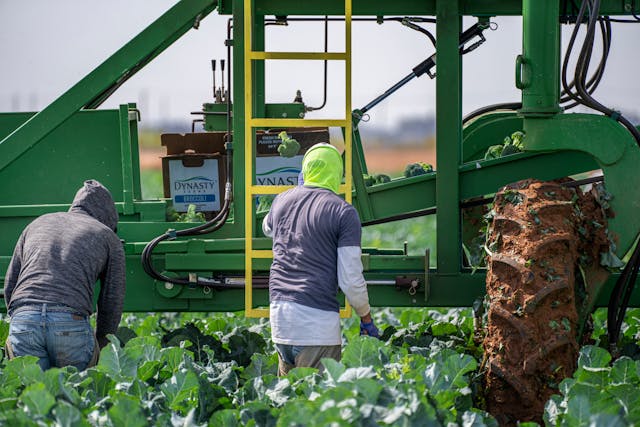
There are farms and farms, those that respect the laws and those that for profit decide to go into illegality.
Satnam Singh, the 31-year-old who died in the Pontine agro area after having a limb amputated while working in the fields, was a victim of one of these. An atrocious death that highlights, if proof were needed, the unscrupulous nature of employers who exploit these poor unfortunates in exchange for a few euros.
The phenomenon of exploitation of labourers is a well-known and sadly known phenomenon known by the name of caporalato.
Caporalato is a social and labour scourge that plagues Italy, especially, but not only, in the southern regions. This phenomenon consists of the illegal exploitation of labour, often in conditions of semi-slavery, by illegal intermediaries, called ‘caporali’. These individuals recruit workers, mainly migrants who are often illegal, for employment in sectors such as agriculture, in violation of labour laws and fundamental human rights.
Caporalato has deep roots in Italian agricultural history, but it is in recent decades that it has assumed alarming proportions. The causes are multiple and complex. On the one hand, there is the need for cheap labour to keep the prices of Italian agricultural products competitive on international markets. On the other, there is the presence of a vulnerable migrant population, often without residence permits, who are easily exploited.
Workers are recruited informally and transported to workplaces in inhuman conditions. Working days are gruelling, with shifts exceeding 12 hours, without breaks and in often extreme weather conditions. Wages are paltry and, in many cases, the workers also have to pay the bosses a fee for transport and accommodation, which often turns out to be dilapidated and overcrowded.
The consequences of ‘caporalato’ are devastating both on a human and economic level. In fact, this exploitation generates a vicious circle of illegality that also damages honest companies, which are forced to compete with those who resort to illegal work and ‘caporalato’ to cut costs.
In recent years, the Italian government has taken several initiatives to combat caporalato. In 2016, Law 199 was passed, introducing tougher measures against labour exploitation, increasing penalties for corporals and compliant employers. The law also provides for the seizure of assets and companies involved, as well as assistance and protection programmes for victims.
In 2022, the Minister of Agriculture, Food Sovereignty and Forestry, Francesco Lollobrigida, signed the interministerial decree on ‘social conditionality’.The measure aims to guarantee suitable working conditions, protect health and safety standards within farms, and fight against ‘caporalato’ and the phenomenon of exploitation of workers in the sector.
In addition to legislation, however, a cultural paradigm shift is essential. Raising public awareness and promoting ethical farming practices are crucial steps. Companies must be encouraged to certify their production chain and guarantee decent working conditions.
Caporalato represents a serious violation of human rights and an obstacle to Italy’s economic and social development. Its eradication requires a joint commitment of government, business, consumers and civil society. Only through coordinated action and greater awareness can we put an end to this modern form of slavery and build a fairer and more equitable labour market for all.
It is in this perspective that the Italian government is moving these days.
Minister Lollobrigida and Minister Calderone, responsible for agricultural and labour matters respectively, announced a new step in the fight against ‘caporalato’ during a meeting held at the Ministry of Labour. “The common goal is to declare war on ‘caporalato’ and intensify actions to counter a system that mortifies work,” explained Minister Calderone at the end of the meeting, “endangering human lives and hindering the growth of a strategic sector like agriculture.
Minister Lollobrigida commented: ‘We must speed up the regulatory tools to fight the phenomenon of ‘caporalato’ also through the agriculture decree,’ adding, ‘One of the things that emerged from the meeting is that in these situations a phenomenon occurs: the criminalisation of one of the links in the chain. These deaths depend on criminals, not on the farm system’.
The war on this exploitative practice therefore continues, and seeks to equip itself with new tools, first and foremost control. It is a difficult war, especially because it fights on the one hand the dishonesty of unscrupulous entrepreneurs, and on the other the omertà of those who are exploited, fearful of losing those few euros that are often necessary to support entire families.
In this we are very hopeful that the Italian government will finally succeed in taking substantial action, but it will certainly need the help of virtuous companies and also of consumers who can do their part by choosing products that guarantee respect for workers’ rights.
FeMo



 Subscribe
Subscribe